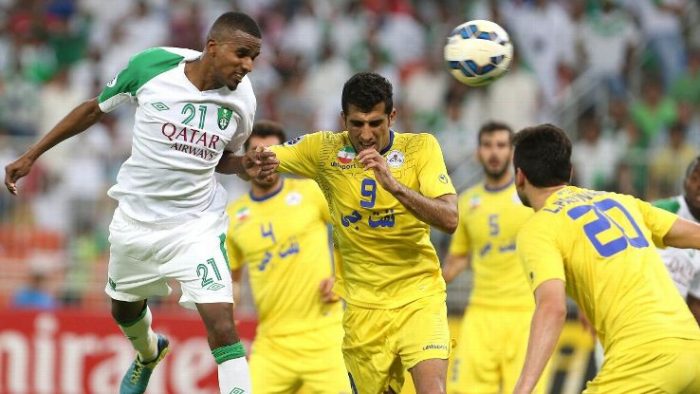Sport could be key to foreign firms in Iran

Gulf News – DUBAI, The country’s rich sporting culture is primed for international companies looking to make their mark.
Iran’s sports industry could be set for a wave of foreign investment as companies seek to build brand identity and consumer loyalty in the Middle East’s second most populated country.
International companies have been jockeying for investment opportunities in what many see as the last untapped major economy and already there have been billions of dollars in deals signed since January’s historic nuclear accord.
The country’s rich sporting culture is now primed for international companies looking to make their mark on Iran’s nearly 80 million people, sports marketing experts say.
“It has suddenly become a very attractive country for all sorts of companies and those companies will be looking at how do they position themselves and get their brand known,” Alun James, managing director of Four Consulting in the UK, told Gulf News by phone. “Obviously a good way of doing that, to raise awareness very quickly and to buy affinity and alignment with consumers, is to look at sponsorship.”
Iran’s football-mad fans could be the first point of entry for foreign firms with the possibility of television rights, kit manufacturer and sponsorship deals up for grabs.
“There is clearly some potential for this to happen,” Simon Chadwick, professor of sports enterprise at the UK’s University of Salford, told Gulf New by phone.
Iran boasts some of Asia’s biggest football teams both in terms of success and fan base. Its national team has been to four World Cups and won three Asia Cups. The Tehran derby between clubs Esteghlal and Persepolis is arguably the biggest in Asia, according to the BBC, regularly attracting crowds of 100,000 and an average domestic television audience of 20 million.
“Culturally, football is a very important sport” in Iran, Matt House, founder and chief executive of British sports marketing company SportsQuake told Gulf News by phone.
Chadwick estimates Iran’s sports industry could be worth as much as $500 million (Dh1.84 billion) over the medium-term and up to $1 billion over the longer-term when including sponsorship deals, ticket and merchandise sales and event management.
“This is obviously dependent upon the speed in which Iran opens up to the world,” he said.
International sponsorship deals could also increase the value of the domestic rights, sports marketing experts say, whilst generate international broadcast interest, particularly in the Middle East and Asia and among the Iranian diaspora.
“The value of the Iranian premier league rights in Iran will exponentially go up in a more open society,” said James, who has been involved in marketing and communications for major sport events including London 2012 and England Rugby 2015.
House agrees there is a “huge opportunity for the cost of those rights to grow,” but says that there are “a lot of ‘ifs’ and ‘buts’.”
“People will take a bit of time to gauge how serious [the lifting of] these sanctions are,” he said.
Despite its success on the pitch, the business side of Iranian football has not developed like other leagues around the world. In Iran, it is common for sponsorship deals to be on a match-by-match basis as opposed to annual or multi-year contracts seen in Europe and the United States. Most, if not all, of the teams are also state-owned and clubs can see several executive management changes in a season.
“It’s very old school,” House said, “It’s very much in its infancy — the whole sponsorship industry.”
Reforms have been put forward since Mehdi Taj was appointed Iranian Football Federation (FFIRI) president earlier this year, including a proposal to hand over the responsibility of ticket sales to the clubs, according to Mahan Sajadi, co-founder of Gol Bezan, an English-language podcast on Iranian football, and a research and insight executive at SportQuake.
Foreign firms are also likely to look at the television rights deals that are at present sold on a monopoly basis. In 2011, the Iranian Football Federation signed a domestic broadcast rights deal running until 2014 for the country’s top division, the Iran Pro League, worth nearly $100 million. This was despite lacking modern broadcast technology that is commonplace in competitions overseas.
Very few games are broadcast in high-definition and in the whole league, there may be just the one Spidercam, which allows cameras to move both vertically and horizontally over a certain area, Sajadi told Gulf News. If an international company were to come in and successfully bid for the rights, they would need to bring in new technology, including modern routers, just to broadcast in high-definition.
Whilst the likes of airplane makers Airbus, Boeing, and carmaker Peugeot have signed deals with Iran, there are concerns over how they can be finalised, mainly due to financing. The United States still blocks Iran from accessing its financial system and the dollar due to non-nuclear related sanctions it continues to impose and major European banks are reportedly cautious of falling afoul of the US. Other sectors and companies have also been apprehensive about entering Iran since sanctions lifted. Puma declined to comment when asked about their plans for the Iranian market; Adidas deferred comment to their Middle East partner who did not respond. Nike also did not respond to questions on its plans for Iran.
“Everybody needs to be satisfied that this current situation in Iran is going to be constant and not something that is going to flip-flop out,” House said, “People will be wary to invest immediately.”


 (8 votes, average: 4.88 out of 5)
(8 votes, average: 4.88 out of 5)

